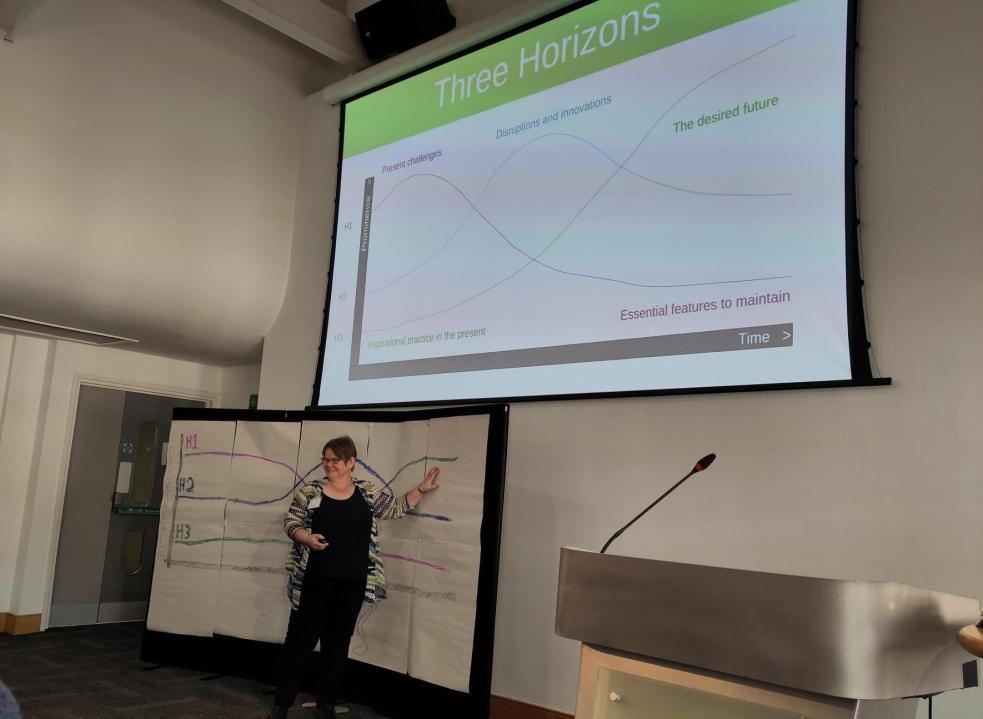Engaged Futures – work in progress
NCCPE Co-director, Sophie Duncan and Project Manager, Sian Aggett reflect on the themes that are emerging from our three horizon process, and invite you to contribute.

We are now deep into our Engaged Futures project – we’ve been talking to lots of people in lots of places, and what is emerging are some key themes which provide a framework to help us begin to consider how a different set of futures for the university sector might be realised.
Each theme focuses on a different aspect of the future system and helps crystalise the challenges and opportunities that are emerging from our consultation. Inevitably, they overlap with each other – but they are helping us to get a deeper appreciation of how system change might be both imagined and realised.
And we need your help – for each of these themes, we are actively looking for examples of organisations, activities or analysis that provide inspiration and learning to inform our collective thinking and help us imagine and plan for how engaged futures might be realised.
Get involved
Do any of these themes resonate with you? Do you have expertise to share, or perspectives to offer? Have you examples of people or organisations who are developing innovative and effective practices relating to these themes?
To get involved, you can:
- Join the catalysts group to share your insights, contribute to the consultation, or to apply for funding to host an Engaged Futures conversation with people in your network
- Invite others to join the catalysts including people within the HE sector and those who work alongside
- Add your thoughts and ideas to our padlet at Engaged Futures responses to the Blog
- Email your thought and ideas to nccpecatalysts@uwe.ac.uk, or let us know how we can support you to contribute
- Join one of our Engaged Futures Events. We have three more catalyst events coming up (details below)
We invite you to get involved and join a growing network of people who are keen to see a more inclusively engaged future for the HE sector.
Catalyst Events - join the conversation
We'll be leading a selection of its own conversations on some of the themes that have emerged. You can choose to join the conversation as per the dates and times listed below. Please click on each Workshop title to register your attendance.
- The Inclusive University
Wednesday 07 May 2025
14:00 - 17:00
- Resourcing the University in 2045
Thursday 12 June 2025
14:00 - 17:00
- Wrap-Up and Review
Wednesday 18 June 2025
10:00 - 13:00
